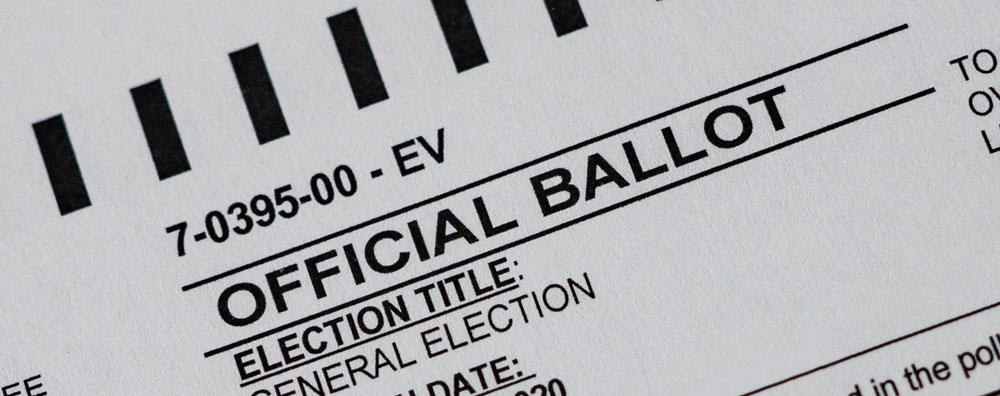2024 Employment-related Ballot Measures Passed by Voters

On Nov. 5, 2024, voters in several states decided on ballot measures that will impact and change the workplace in 2025 and beyond.
This Compliance Bulletin provides an overview of the employment-related ballot measures voters passed in 2024. The ballot measures included the following topics:
- Minimum wage increases; Paid sick leave mandates;
- Legalization of medical marijuana; Captive audience bans;
- Constitutional protections against discrimination; and Collective bargaining rights.
- Employers should note that state election results are generally unofficial until they have been certificated in accordance with state law.
Action Steps
Employers should review these ballot measures and impacted employers should update their employment policies, practices and procedures to remain compliant with any changes. Employers should seek the advice of a knowledgeable legal professional for specific situations and counsel on how to implement required changes.
Please contact HR&P for more information on these updates and other labor and employment issues.
Alaska
State Minimum Wage Increase, Paid Sick Leave and Captive Audience Ban (Measure No. 1)
Alaska’s Measure No. 1 increases the state’s minimum wage to $13 per hour on July 1, 2025, $14 per hour on July 1, 2026, and
$15 per hour by July 1, 2027. After 2027, the state’s minimum wage will be adjusted for inflation annually and must remain at least $2 more than the federal minimum wage.
In addition, the measure requires employers to provide employees with one hour of paid sick leave for every 30 hours worked. Employers with 15 or more employees must allow employees to accrue up to 56 hours of paid sick leave per year, and employers with fewer than 15 employees must allow employees to accrue up to 40 hours of paid sick leave.
The measure also prohibits employers from taking adverse employment actions against employees who refuse to attend employer-sponsored meetings regarding religious and political matters.
Missouri
State Minimum Wage Increase and Paid Sick Leave (Proposition A)
Missouri’s minimum wage will increase to $13.75 per hour on Jan. 1, 2025 and to $15 per hour on Jan. 1, 2026. Starting in 2027, the minimum wage will be adjusted based on changes in the Consumer Price Index for Urban Wage Earners and Clerical Workers. In addition, all employers must provide one hour of paid sick leave for every 30 hours worked. Employers with 15 or more employees must allow employees to accrue up to 56 hours of earned sick time per year, and employers with fewer than 15 employees must allow employees to accrue up to 40 hours of earned sick time.
Nebraska
Paid Sick Leave (Initiative 436)
Initiative 436 requires employers to provide eligible employees with earned paid sick time for personal or family health needs. Employers with at least 20 employees must provide up to 56 hours of earned paid sick leave annually, and employers with fewer than 20 employees must provide up to 40 hours annually. “Eligible employee” means any individual employed by an employer in the state and who works at least 80 hours in a calendar year. Employees accrue a minimum of one hour of earned paid sick time for every 30 hours worked unless the employer establishes a higher limit. Earned paid sick time must begin to accrue at the start of an employee’s employment or Oct. 1, 2025, whichever is later. Employers may provide all paid sick time that an employee is expected to accrue in a year at the beginning of the year, and unused accrued paid sick time carries over to the following year. Employers that already offer paid leave that meets the requirements of the initiative are not required to offer additional paid sick time.
Medical Marijuana Legalization (Initiative 437)
Initiative 437 legalizes the medical use of marijuana for qualified patients by adopting the Nebraska Medical Cannabis Patient Protection Act. Qualified patients include a patient 18 years or older with a written recommendation from a health care practitioner or a patient younger than 18 years of age with a written recommendation from a health care practitioner as well as written consent from a parent or guardian. The initiative does not require employers to permit or accommodate marijuana use in the workplace.
New York
Expansion of Protections Against Discrimination (Proposal 1)
Proposal 1 amends the Equal Protection Clause of the New York Constitution to prohibit the denial of rights to an individual based on their ethnicity, national origin, age, and disability as well as their sex, including sexual orientation, gender identity, gender expression, pregnancy, pregnancy outcomes, and reproductive health care and autonomy. Previously, the state’s constitution only prohibited discrimination based on race, color, creed and religion.
Oregon
Collective Bargaining for Marijuana Workers (Measure 119)
Measure 119 requires marijuana retailers and processors to submit to the Oregon Liquor and Cannabis Commission a signed labor peace agreement with their applications or license renewals requiring businesses to remain neutral when labor organizations communicate with employees about collective bargaining rights.
